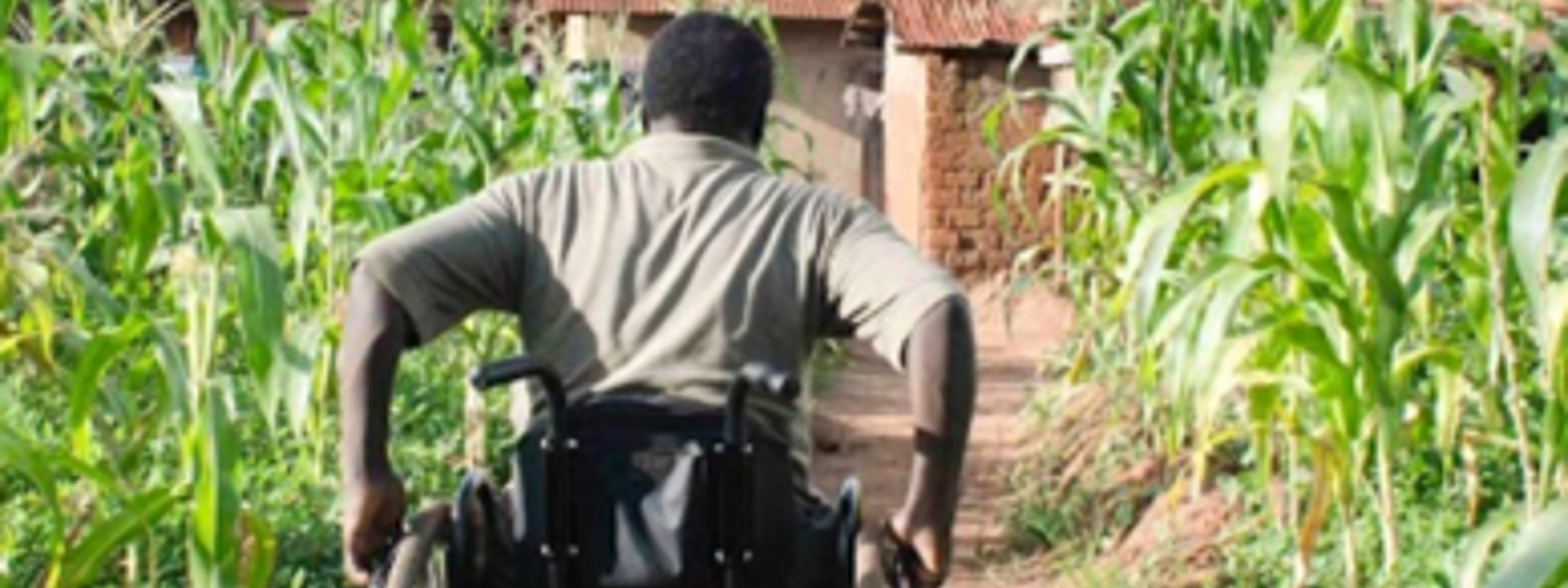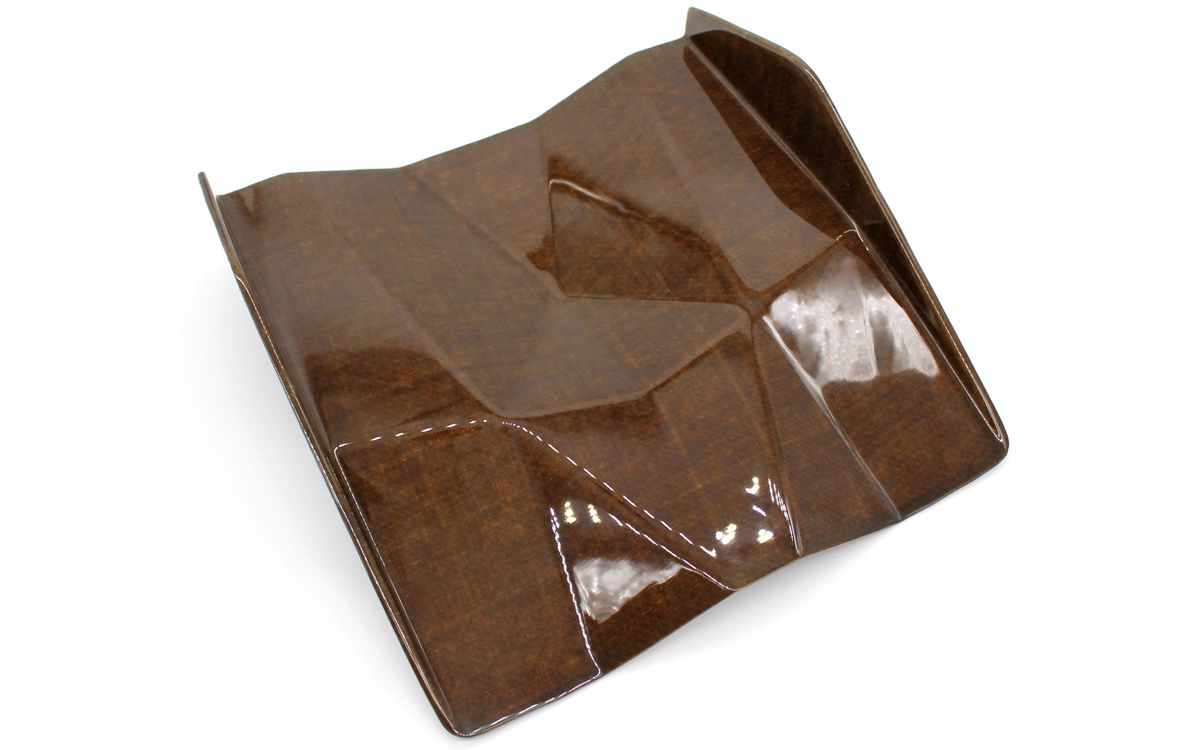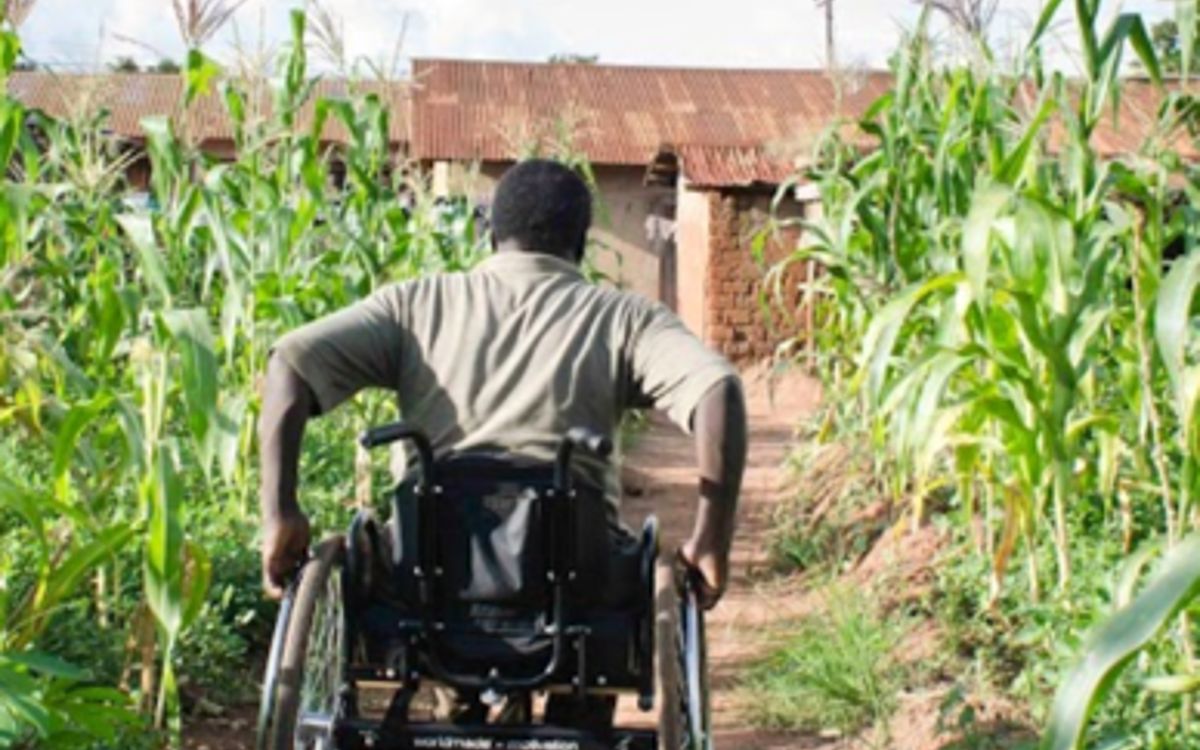
Sustainable composite wheelchair seat designed for disabled people in developing countries
The National Composites Centre (NCC) and Motivation have collaborated to design and manufacture a wheelchair seat pan made entirely from sustainable, green composite materials that are not only better for the environment but could significantly improve the quality of life for disabled people in developing countries.
Motivation, a global disability charity and social enterprise that provides wheelchairs, training and services to disabled people in low- and middle-income countries, approached the NCC for help in developing and proving a new wheelchair seat pan concept that would be robust to cope with rough terrain, affordable to produce, and made from bio-based materials that could be locally sourced within those countries. Most importantly, the charity wanted to prove the concept of a new design that would offer a lightweight, durable and hygienic solution. There are 75 million people worldwide in need of a wheelchair – and 80% of them live in developing countries.
Composites are well-known for their durability, strength and lightweighting properties. The charity currently produces wheelchair cushions from PU foam, which sit on either fabric ‘slung’ seats that are tensioned between framed sides, or a plywood base. These provide postural support and pressure management that is vital to wheelchair users who are at risk of developing pressure sores and other medical issues, leading to hospitalisation, increasing healthcare costs, reduced quality of life and even death. However, the constant and prolonged use of fabric seats can result in stretching that compromises user posture, while plywood may degrade. The sculpted foam cushion may also degrade or become unhygienic due to hot, humid climates and potential soiling. It is also possible that a separate cushion may be lost.

The NCC worked with Motivation to design and manufacture a prototype flax fibre composite wheelchair seat pan that can be uniquely moulded to the user to ensure a surface that provides long-term postural control and pressure management. A thin cushion can then be added, replacing the sculpted PU cushions currently in use. This new design is lighter than the plywood equivalent and provides more durable, reliable, ‘built-in’ physical support and postural control, which can improve mobility, health and quality of life. Furthermore, it is easier and cheaper to replace the thin foam liner of a seat pan than an entire unrecyclable PU cushion.
Ian Harris, Senior Designer at Motivation, said: “Motivation’s collaboration with the NCC has allowed us to realise the production of a prototype seating pan that had existed as just an idea in our heads. Together we’ve been able to create an exciting concept for a solution to real-world challenges faced by wheelchair users in low- and middle-income countries. The use of green composites could be a game-changer for the assistive technology sector and creates a challenge to ensure more sustainable practices through innovative thinking. We’re grateful to the NCC team for supporting our important work to keep improving the provision of wheelchairs around the world.”
Adam Healey, Research Engineer at the National Composites Centre who led the project team, said: “This is the first ever wheelchair seat pan made entirely from green materials for the developing world market, so it’s been a really exciting and rewarding project for us to work on with Motivation. By designing the seat with localised manufacture in mind, we’re not only reducing the carbon footprint associated with transportation but we’re helping to create more opportunities, such as employment, for local people in developing countries.
“There is so much scope to optimise this design further, and many opportunities to explore the end-of-life potential for this design so that the seat pans can be easily recycled, bringing even more environmental benefits. This opens the door for us to make more wheelchair components out of green composites.”
The NCC is a world class innovation centre in the design and manufacture of composites that brings together the best minds and best technologies to solve the most complex engineering challenges. This R&D project was funded by Sustainable Composites, a partnership between the NCC and CPI - two of seven centres of the High Value Manufacturing Catapult – which is working to develop the next generation of sustainable composite materials by harnessing the UK’s world-leading composites research and technology development capabilities. It is accelerating the development of new recycling technologies for composites in the UK and creating new sustainable composites made from bio-based materials.
Bcomp amplitex™ flax fibre supplied by Gurit and the Sicomin Infugreen resin were selected as the base materials to demonstrate the new design. They do not require high cost manufacturing techniques often used in composite manufacture and require a cure time and temperature that is suitable and sustainable within those areas. The ampliTex™ solution can also easily be made with different natural fibres for different locations, such as jute for Asia or sisal for South America, bringing the manufacture to local areas which cuts down on shipping costs and upskills local people.
The overall costs to manufacture the green composite seat are slightly more however the long-term benefits of quality of life and durability completely outweigh the increase in production costs. Biocomposite materials are also more durable for constant use in aqueous or dusty environments, improving sustainability through extended service life.
Special thanks go to Project 12, who kindly treated the prototype wheelchair seat oan using their state-of-the-art coating system for flax-based composites: www.project-12.co.uk

